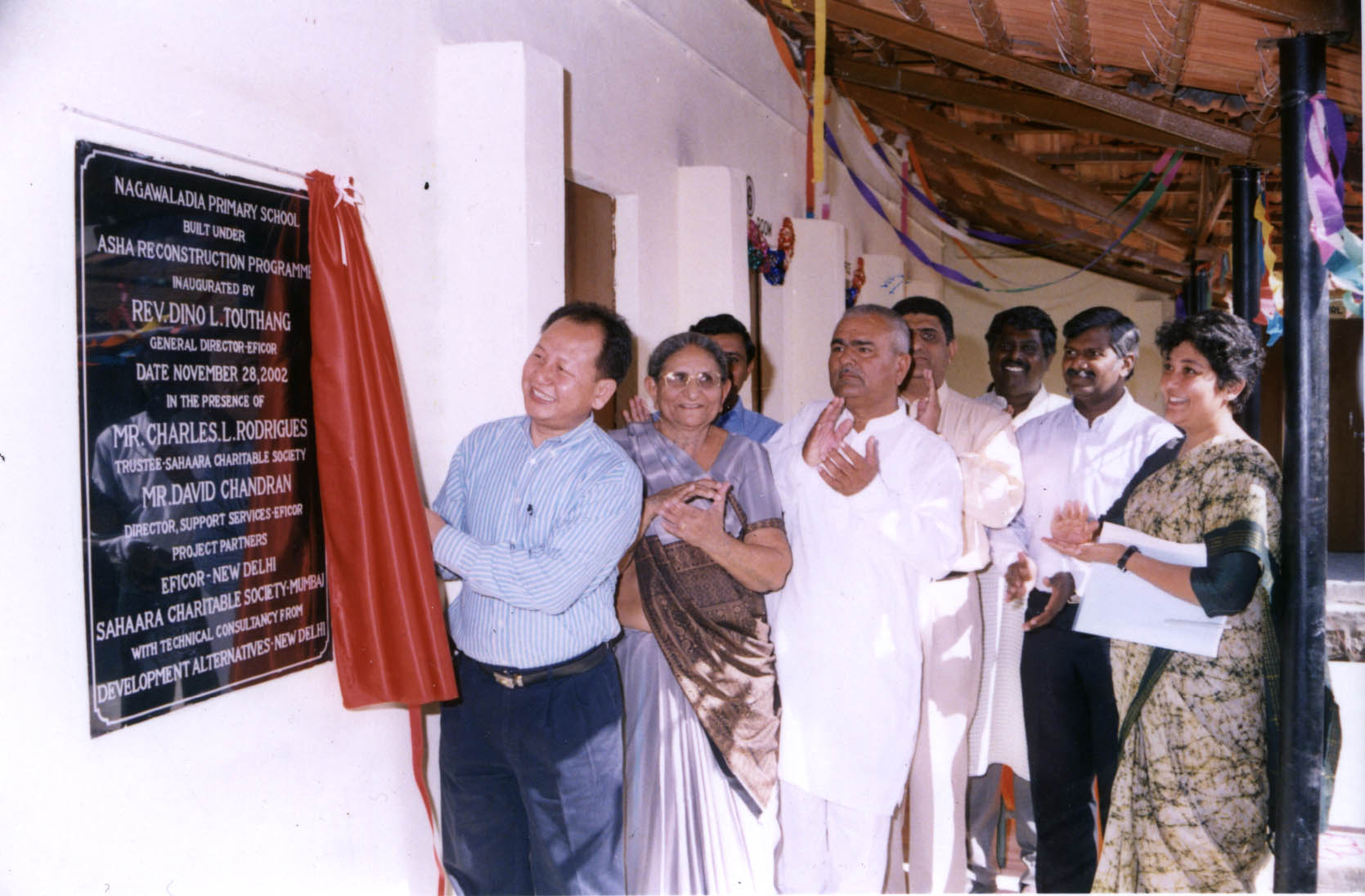|
A New Beginning in Nagavaladiya and Bittavaladiya (west), Gujarat
Zeenat Niazi zeenat@sdalt.ernet.in On November 28th 2002, the villagers of Nagavaladiya and Bittavaladiya (west) celebrated the inauguration of their newly constructed community buildings. At an emotional ceremony attended by the entire village community, the funding agencies – SAHARA Trust, EFICOR, the building contractors and the project management team; prayers, songs and dances performed by the primary school children of the village heralded the commissioning of a seven class-room primary building and an anganwadi and panchayat office each in the two villages. This has been a culmination of an interactive and laborious process begun in September 2001 as part of the reconstruction response after the earthquake that hit Gujarat on January 26th, 2001. The reconstruction of the community buildings is part of the ongoing project Asha (hope) of the Evangelical Fellowship of India Commission on Relief (EFICOR). Development Alternatives are the management consultants to the project. The project involves reconstruction of all houses in the villages Nagavaladiya and Bittavaladia (west) in South Anjar Taluk and Sai and Torania villages of Rapar Taluka in the Kutchh District of Gujarat. This adds to a total of 720 houses and community buildings mentioned above. After the earthquake in January 2001, EFICOR had been intensively involved in the relief operations in these villages and as a natural continuation of their work, looked at reconstruction support to these villages. Development Alternatives has been previously associated with EFICOR in post disaster response programs in Uttarkashi and Latur in 1992 and 1994. In Gujarat, EFICOR associated with DA for the assessment of damage after the earthquake, physical design for houses and community buildings for reconstruction and management of the reconstruction project. While the actual (re)construction is being implemented by local contractors, village building committees have been mobilized by EFICOR as the representatives of the village community that take design and technology decisions before these can be detailed out for construction.
The actual design and selection of technologies for the reconstruction of houses and community buildings was through an interactive and iterative process over many intensive meetings with the village building committees and the Gram Sabha. The designs were detailed out by Development Alternatives and structural and other necessary building clearances sought from the approved government agencies. Most of the reconstruction is in-situ, and new houses stand on the same land where the original house was destroyed during the earthquake. In some cases, where the plot of land available to a family was very small, the family members have opted to build the new house on the land adjacent to the village that has been purchased by them. In the process of construction, the village building committee has played an important role in terms of quality control and time tracking. They have been involved in all the aspects of construction, right from ratifying the ownership of land for an individual family and getting the patta verified from the local Talati (village land officer) to witnessing the selection of location of the new house on an individual’s plot of land and approving the quality of construction, together with the DA engineers and continuously raising the issue of pace and efficiency of construction. Even though the entire reconstruction project is a grant- in-aid through funds raised by EFICOR, the village community has behaved like a very demanding client, seeking value from every rupee worth of aid coming in. The community buildings have been formally commissioned and at the time of writing this note, reconstruction of houses in Nagavaladiya and Bittavaladiya (west) is almost complete. Houses in villages Torania and Sai will be handed over by March of 2003. For Development Alternatives, it has been an intensive learning experience and an extremely fulfilling one, where a client – consultant relationship could be established with the village community, an experience very rare in the grant oriented freebie world of the development sector. q
|
